3 Out Of 4 People Want Companies to Use Consumer Consented Data

Highlights
- 84% of respondents said that they know what browsing cookies are.
- 75% of respondents said they “like” the idea of companies needing their consent to track them.
- 70% of respondents don’t agree with companies tracking them for marketing purposes.
- 44% of respondents said that they use an ad blocker to prevent companies from targeting them. Only 6% of people said they don’t use an ad blocker because they like ads targeting them.
- Men were more knowledgeable of how online ads work than were women or non-binary respondents.
Results
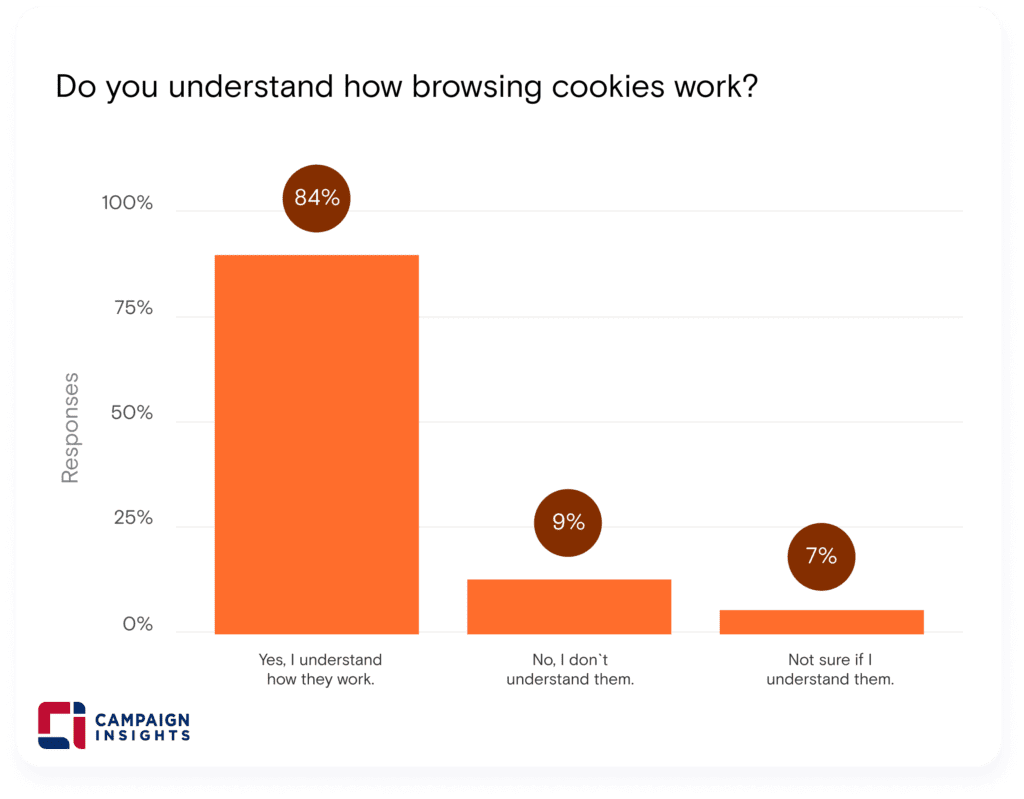
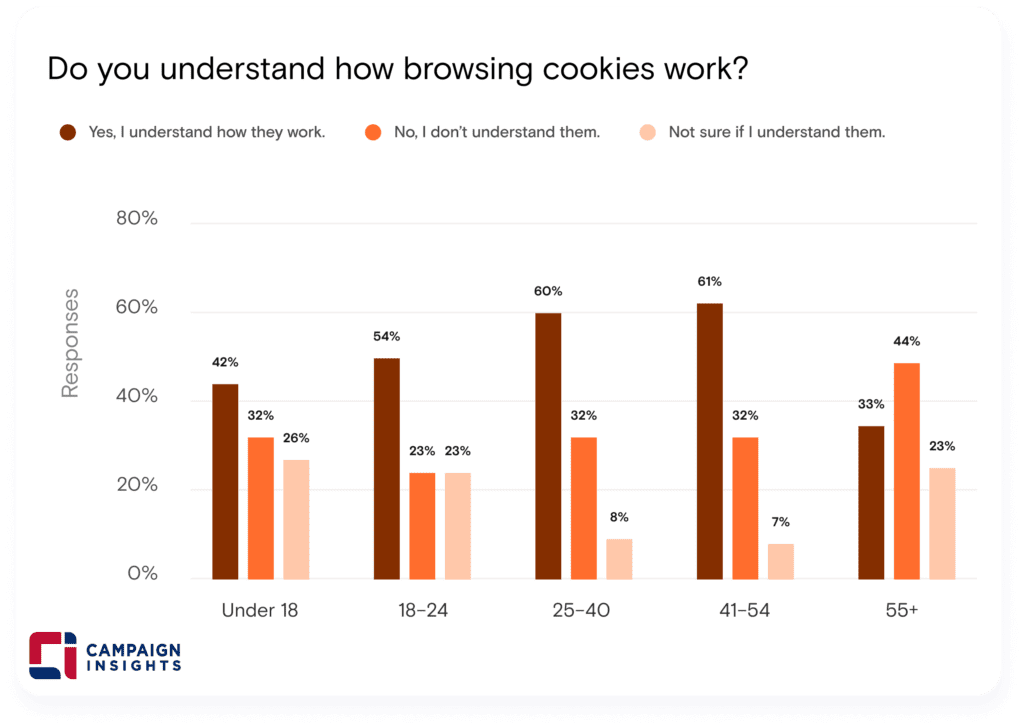
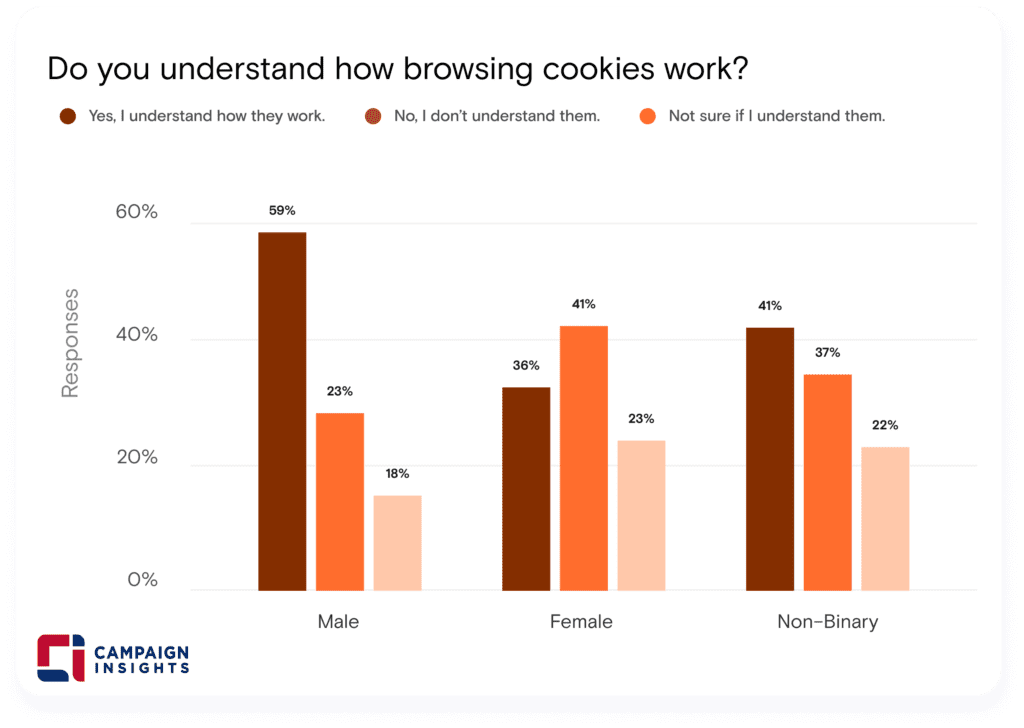
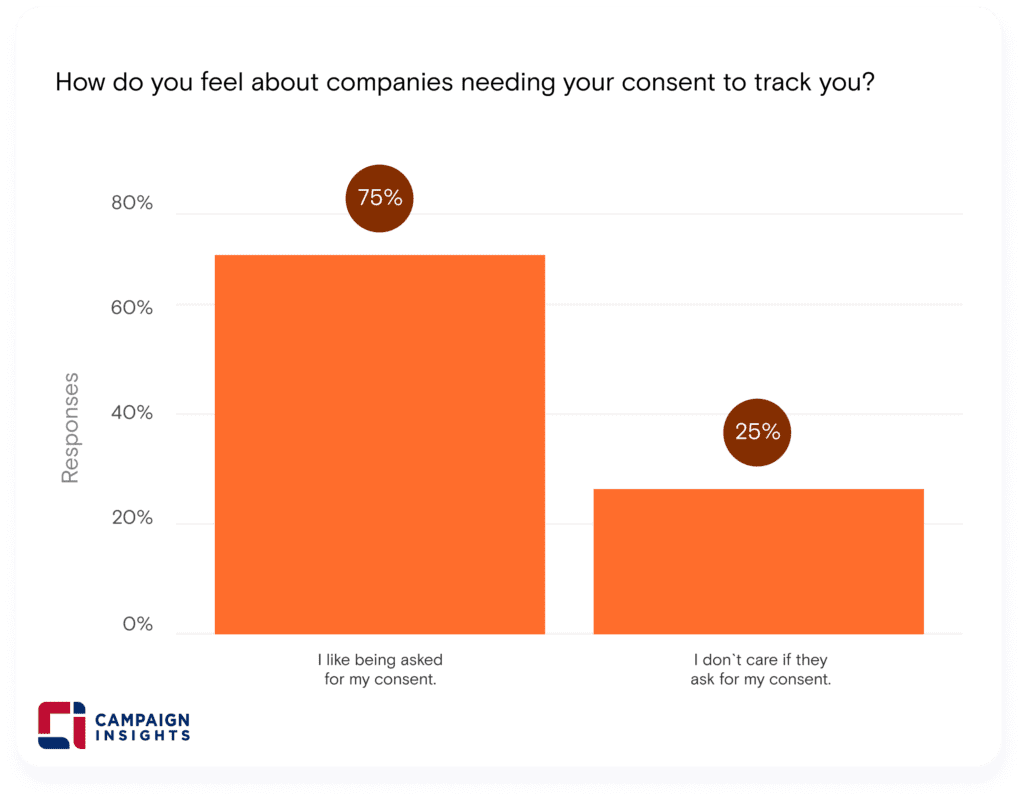
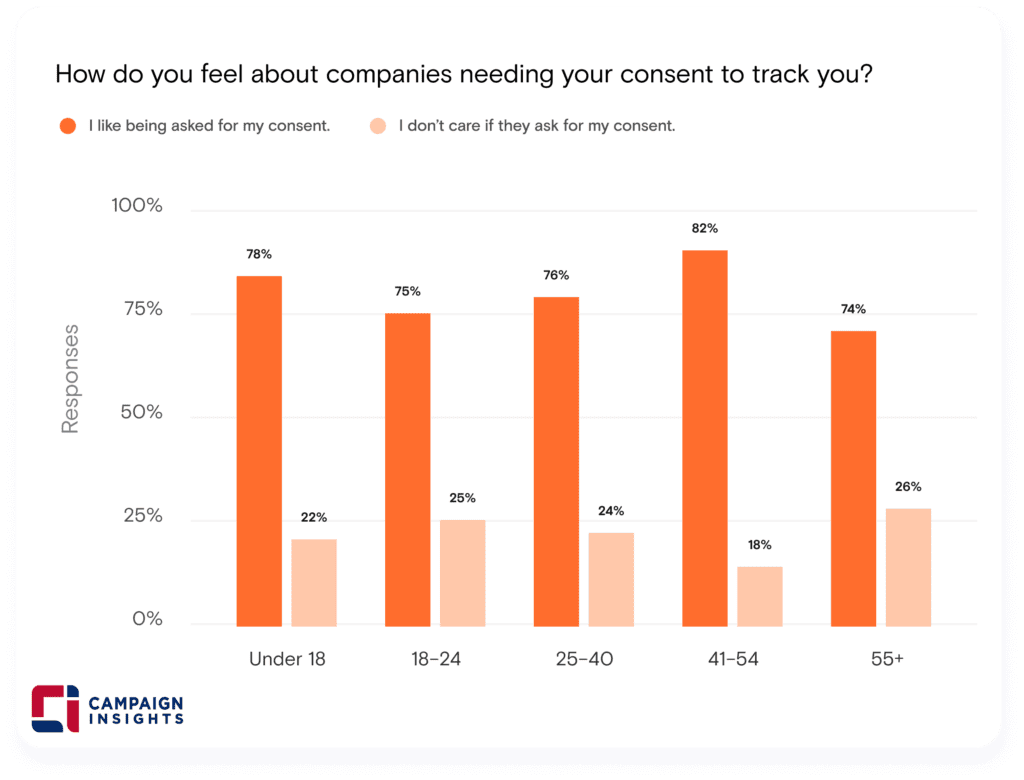
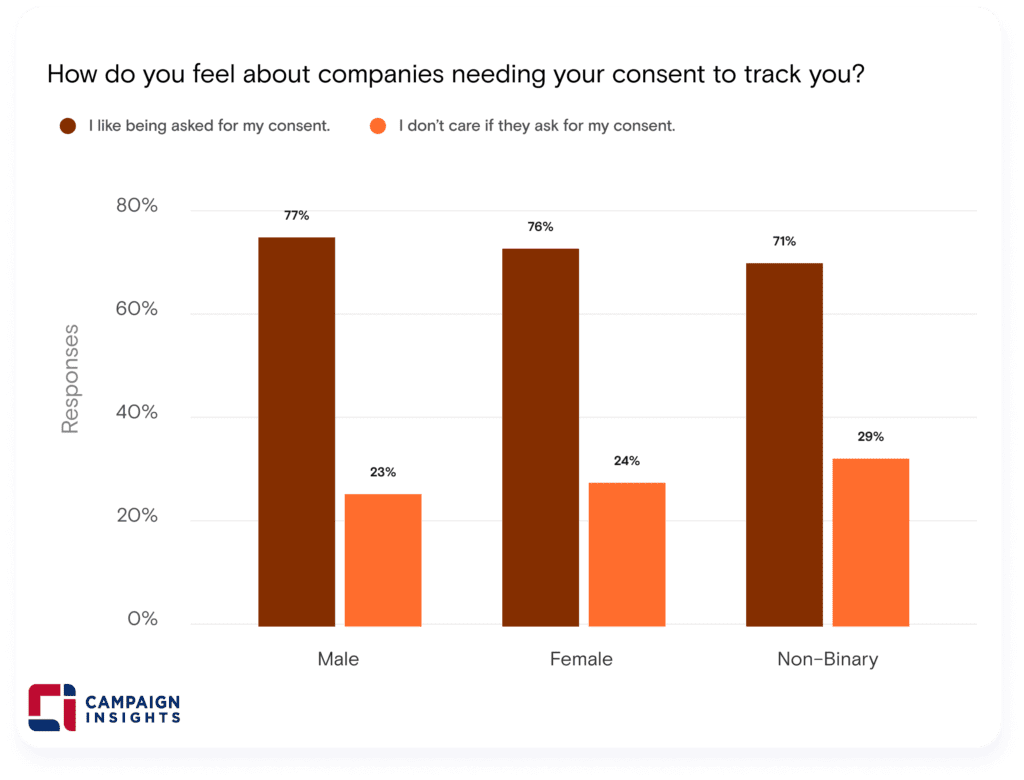
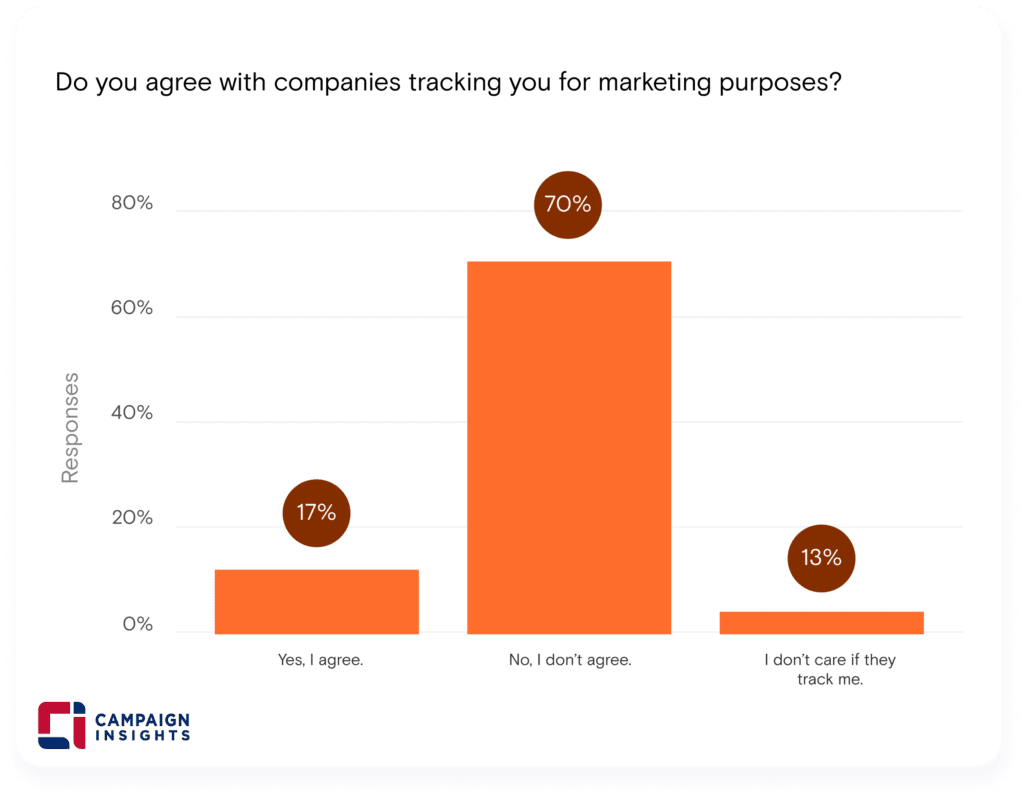
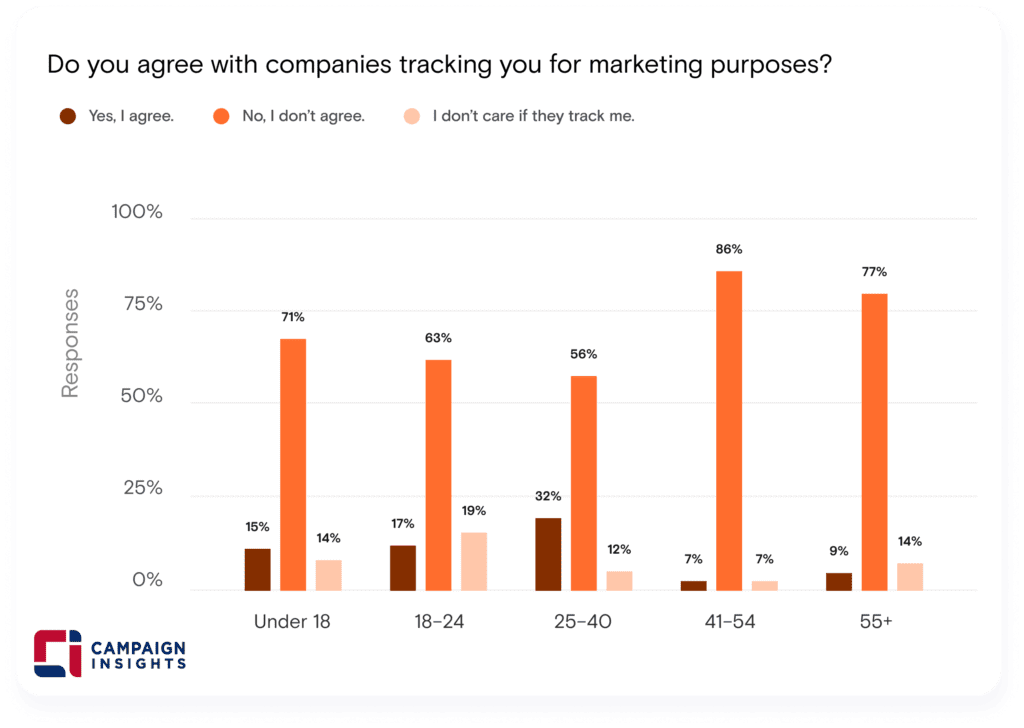
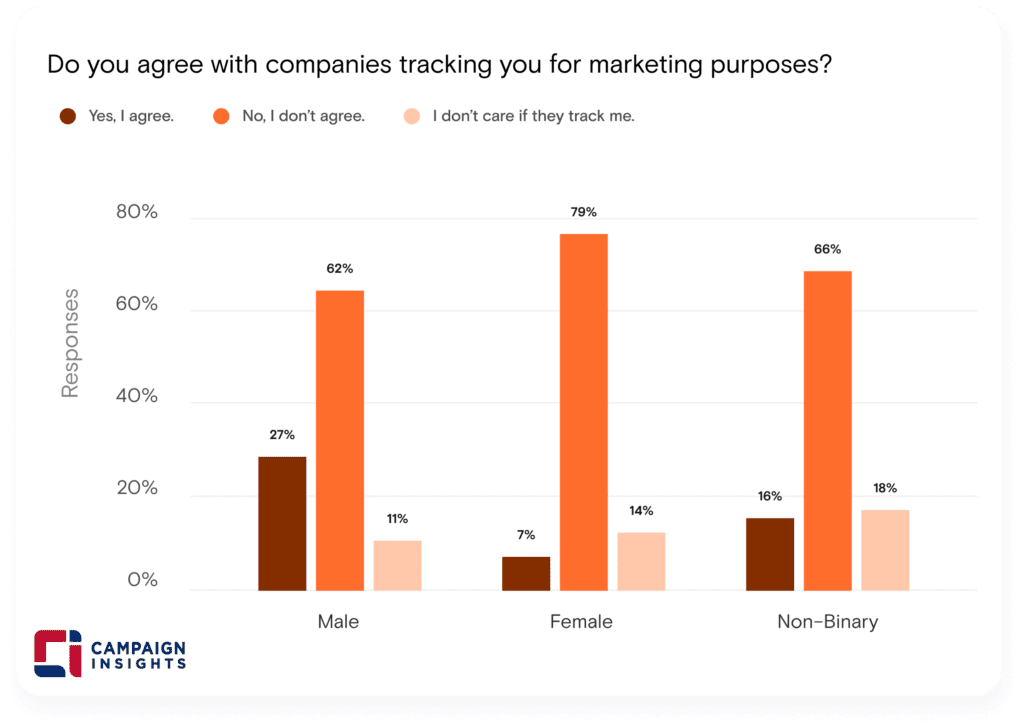
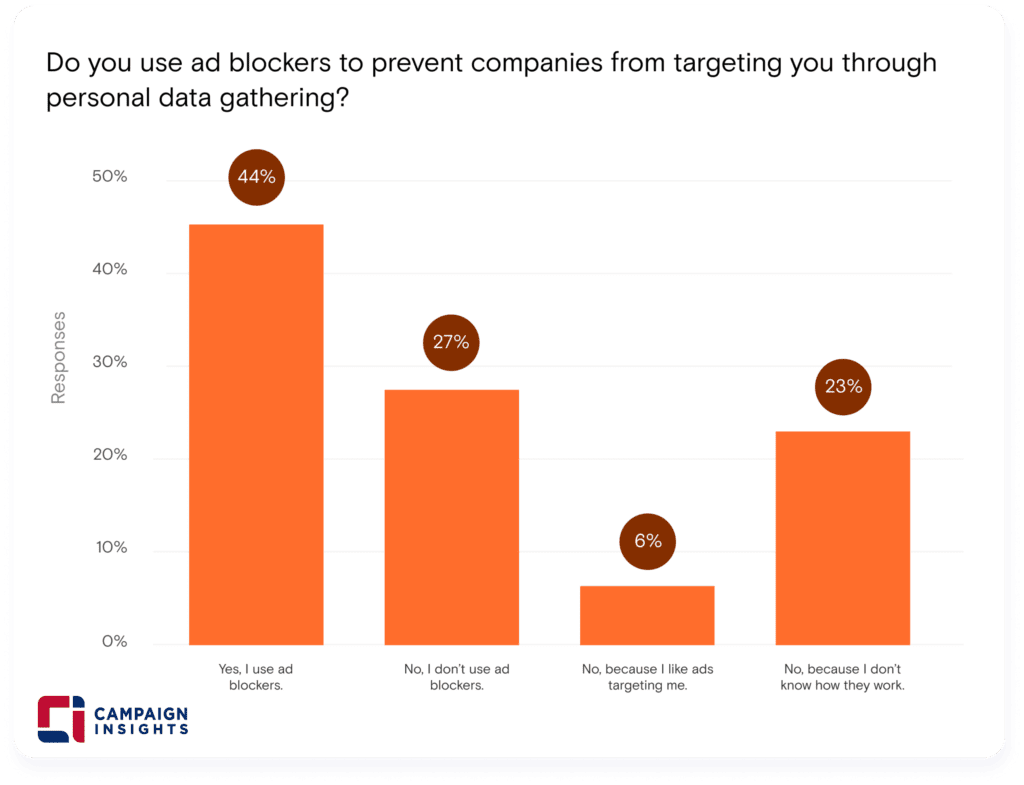
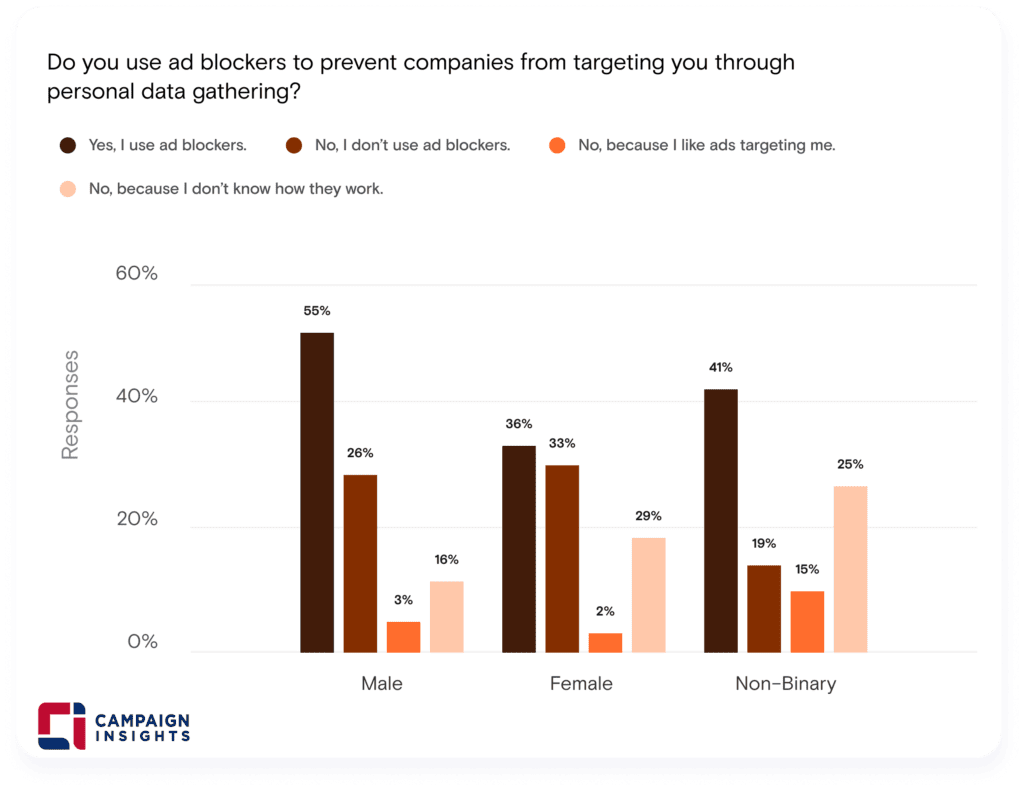
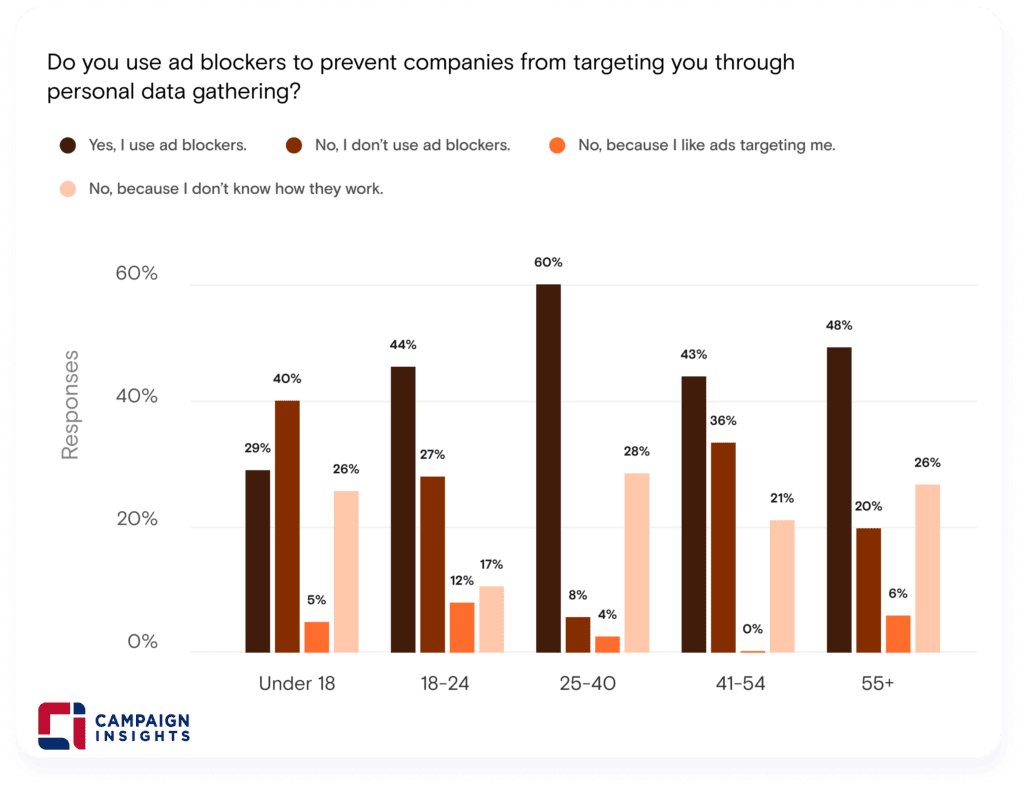
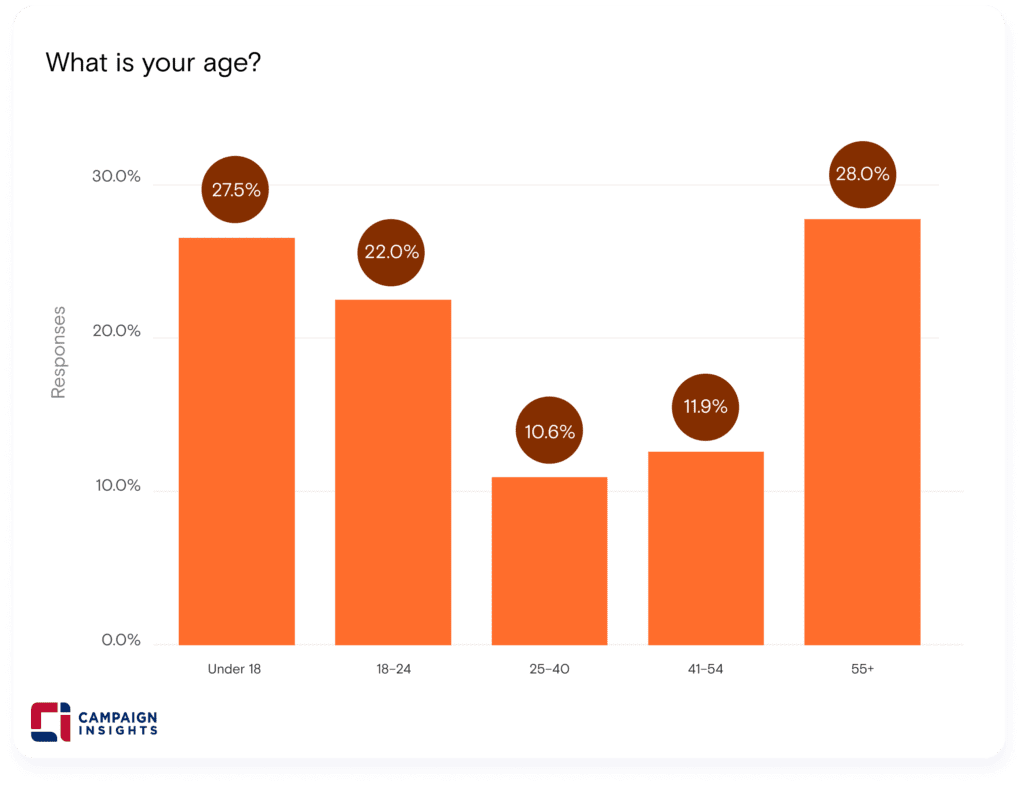
The Process
Discussion
Based on these survey results, it’s clear that most people don’t like targeted online ads. It was interesting to learn that men had a greater understanding of how ads work, and how to prevent them through ad blockers, over women or non-binary respondents.
It was surprising how much women did not like targeted ads, given that statistically speaking, more ads target female shoppers than male shoppers. This should serve to caution online advertisers of a few things: how they collect their data, how accurate it is, and how frequently it’s being used. These survey results suggest people are growing wary of how online advertising works, and how often the data used is inaccurate, causing more and more people to want take back control of their data altogether.
The results also provide a strong use case for growing the use of AI and machine learning for better understanding people’s real attitudes and behaviors, which could prove much more accurate, and relevant, in the advertising industry than collecting sensitive personal data that most people clearly don’t approve of. We’re eager to see how online advertising evolves in the coming years, given the vast changes in attitudes to consumer privacy and the evolution of better technology.
Campaign Insights’ Realtime Polling surveys differ from traditional online surveys in that the questions are shown to the user on web pages in place of an ad. Unlike Google Surveys, which block access to content until the questions are answered, Realtime Polling surveys are optional, thus ensuring that participants are responding voluntarily.
